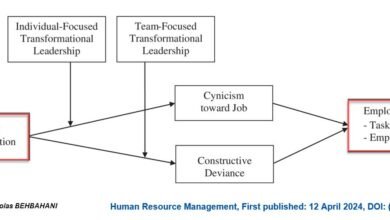
By | Susan Wray
What areLeadership Qualities?
Individuals with leadership qualities have characteristics and abilities that enable them to monitor procedures, drive initiatives and guide toward achieving their objectives. Leadership qualities are critical in allowing corporate leaders to make informed judgments regarding their organisation’s mission and goals, as well as correctly allocating resources to meet those objectives. Leadership qualities include the ability to delegate, encourage and effectively communicate.Other leadership attributes include honesty, courage, dedication, and creativity.
The ability of an organisation to guide individuals, teams towards the achievement of goals and objectives is also referred to as leadership qualities. It is critical in management since it helps to increase effectiveness and achieve strategic and operational goals. Leaders aid in the motivation of others, counselling, the building of morale, the enhancement of the work environment, and the taking of action.
Why is Educational Leadership Important?
Educational leadership is a team effort that brings together the skills and resources of teachers, students and parents. The purpose of educational leadership is to increase educational quality and the educational system as a whole. Educational leaders have a tremendous impact on their institutions’ climate, attitude and reputation. They serve as the foundation for teaching communities to function and thrive. Schools that have strong school leadership qualities become effective learning incubators, places where students are not only educated but also challenged, fostered and encouraged. Not only this, there are several coursework help services that have become industry leaders to provide best assistance.
Purpose of Educational Leadership
The basic goal of educational leadership is to promote academic accomplishment by improving processes, materials and training. This is mostly performed through collaboration with a variety of people, including educators, parents, students, policymakers, and the general public. From a business aspect, educational leadership is a sort of academic administration and quality management.
Key Qualities of Educational Leadership
Effective school leaders use their educational expertise and management abilities to direct their teaching staff’s efforts toward enhancing the quality of student learning outcomes.
Following certain important elements underpin educational leadership qualities:
· Educational leadership establishes a goal of academic achievement for all students. This is crucial since there has always been a historical split between students from various socioeconomic origins including high and low achievers.
· Educational leadership works to create a welcoming and safe learning environment. That is, delivering comfortable, tidy and structured classrooms that require a healthy school atmosphere.
· Educational leadership delegates authority to others. This empowers teachers, parents and even students to assume responsibility and accept accountability.
· Instructional methods and curriculum content should be improved on a regular basis.
· Modern management tools, procedures and approaches must be borrowed and adapted by the field of education.
Three Main Elements of Educational Leadership
- Lifelong Learning:
It is essential to consider that every stakeholder you will engage with is a part of a learning network in his own classrooms and organisations, whether you are a classroom leader, an educational professional, a non-profit coordinator, or a corporate trainer. It motivates others to cherish that trait by modelling a desire for lifelong learning. Working in the educational area necessitates acknowledging that you must continue to learn and develop throughout your career, regardless of your title or job.
- An Ecosystem of Experiences:
In order to engage, lead and affect significant change, educational leaders should practice critical thinking, empathy, collaboration and flexibility in a range of work situations and with a variety of individuals.
- Inclusivity:
The third aspect of educational leadership is one that is gaining traction in classrooms and businesses around the world. Intuitively, leaders understand that being inclusive is not only the right thing to do, but it also has a favourable association with organisational success. Rather than always recruiting external talent, an organisation might benefit from recognising and embracing the qualities of its own employees. A well-prepared educational leader will know how to bring people from all backgrounds and experiences together in the most effective way possible.
Essential Qualities of a Great Physical Education Leader
- They are conscious of themselves and place a high priority on personal development:
Emotional intelligence is emphasised by effective leaders. Leaders who strive to improve this characteristic are more adaptive, resilient and open to criticism.They are also great listeners and change-resistant.
- They are mostly concerned with the advancement of others:
This leadership qualityis also based on the situational leadership theory, which states that good leaders adapt to whether or not a person or a group is ready, willing and able to do a given action. Delegation, coaching and mentoring are examples of situational leadership tasks.
- They promote strategic thought, action, and creativity:
You must look forward as a leader. Also, you must consider the direction in which the company is heading. When making strategic business decisions, leaders must evaluate both internal organisational elements such as product roadmaps and personnel demands, as well as external factors such as government restrictions and technological advancement.
- They are civic-minded and responsible:
Strong leaders consider the ethical consequences of their decisions for both their customers and their employees. Considering these behaviours will raise your knowledge of ethical conduct and civic-mindedness, which demonstrates personal care for the good of your entire business and the community.
- They communicate effectively across cultures:
Respected leaders can effectively interact with individuals, business units, the entire organisation, and external stakeholders. In an increasingly global industry, leaders must recognise and appreciate diverse communication traditions.
Conclusion
The qualities listed above will assist you in focusing on your self-awareness and personal development in order to acquire these critical leadership qualities. Set goals, prioritise them and take ownership of their accomplishments.Accept responsibility for failing to achieve your stated goals or making errors along the way. Leaders can improve the effectiveness of their communication by practicing these actions.A strong guiding force is essential for effective educational leaders. Because of this vision, they want to be a part of something bigger than themselves.It motivates people to discover a purpose in life that benefits the environment. It also encourages them to ask others to share their beliefs, resulting in a culture that benefits everyone.






